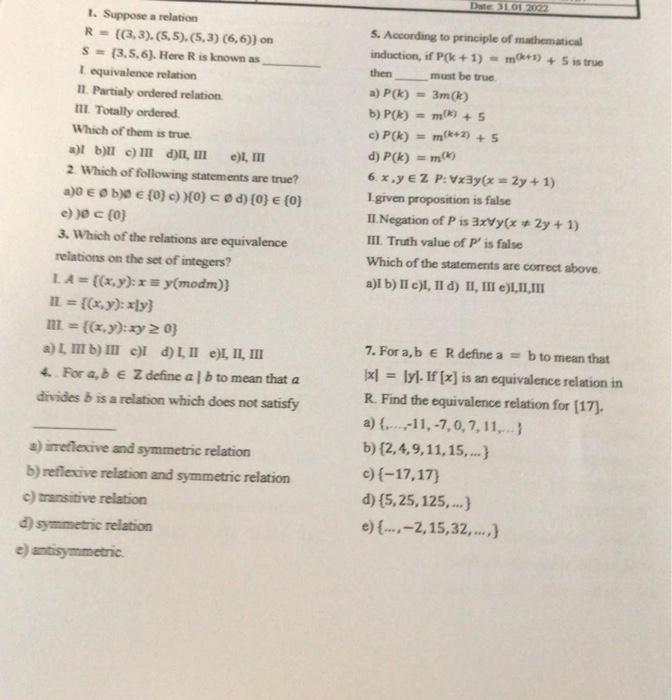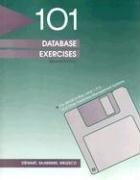Answered step by step
Verified Expert Solution
Question
1 Approved Answer
Discrete Mathematics 1. Suppose a relation R={(3,3),(5,5),(5,3)(6,6)} on S={3,5,6). Here R is known as 5. According to principle of mathematical I. equivalence relation induction, if
Discrete Mathematics 
1. Suppose a relation R={(3,3),(5,5),(5,3)(6,6)} on S={3,5,6). Here R is known as 5. According to principle of mathematical I. equivalence relation induction, if P(k+1)=m(k+1)+5 is true 11. Partialy ondered relation. then _ must be true. III. Totally ordered. a) P(k)=3m(k) Which of them is true. b) P(k)=m(k)+5 a)tb)IIc)IIId)n,IIIe)I,III2.Whichoffollowingstatementsaretrue?d)P(k)=m(k)6,x,yZP:Vxy(x=2y+1) c) P(k)=m(k+2)+5 a) 0D b)s {0} c) {(0} d) {0}{0} I given proposition is false e) ){[0} II. Negation of P is 3xy(x=2y+1) 3. Which of the relations are equivalence III. Truth value of P is false relations on the set of integers? Which of the statements are correct above. 1. A={(x,y):xy(modm)} a)I b) II c)I, II d) II, III e)I,II,III ={(x,y):xy} III ={(x,y):xy0} a) L, III b) III c)I d) I, II e)I, II, III 7. For a,bR define a =b to mean that 4. For a,bZ define ab to mean that a x=y. If [x] is an equivalence relation in divides b is a relation which does not satisfy R. Find the equivalence relation for [17]. a) {,,11,7,0,7,11,} s) imctlexive and symmetric relation b) {2,4,9,11,15,} b) reflexive relation and symmetric relation c) {17,17} c) ararsitive relation d) {5,25,125,} d) syanmetric relation e) {,2,15,32,, e) antisy anmetric 
Step by Step Solution
There are 3 Steps involved in it
Step: 1

Get Instant Access to Expert-Tailored Solutions
See step-by-step solutions with expert insights and AI powered tools for academic success
Step: 2

Step: 3

Ace Your Homework with AI
Get the answers you need in no time with our AI-driven, step-by-step assistance
Get Started


